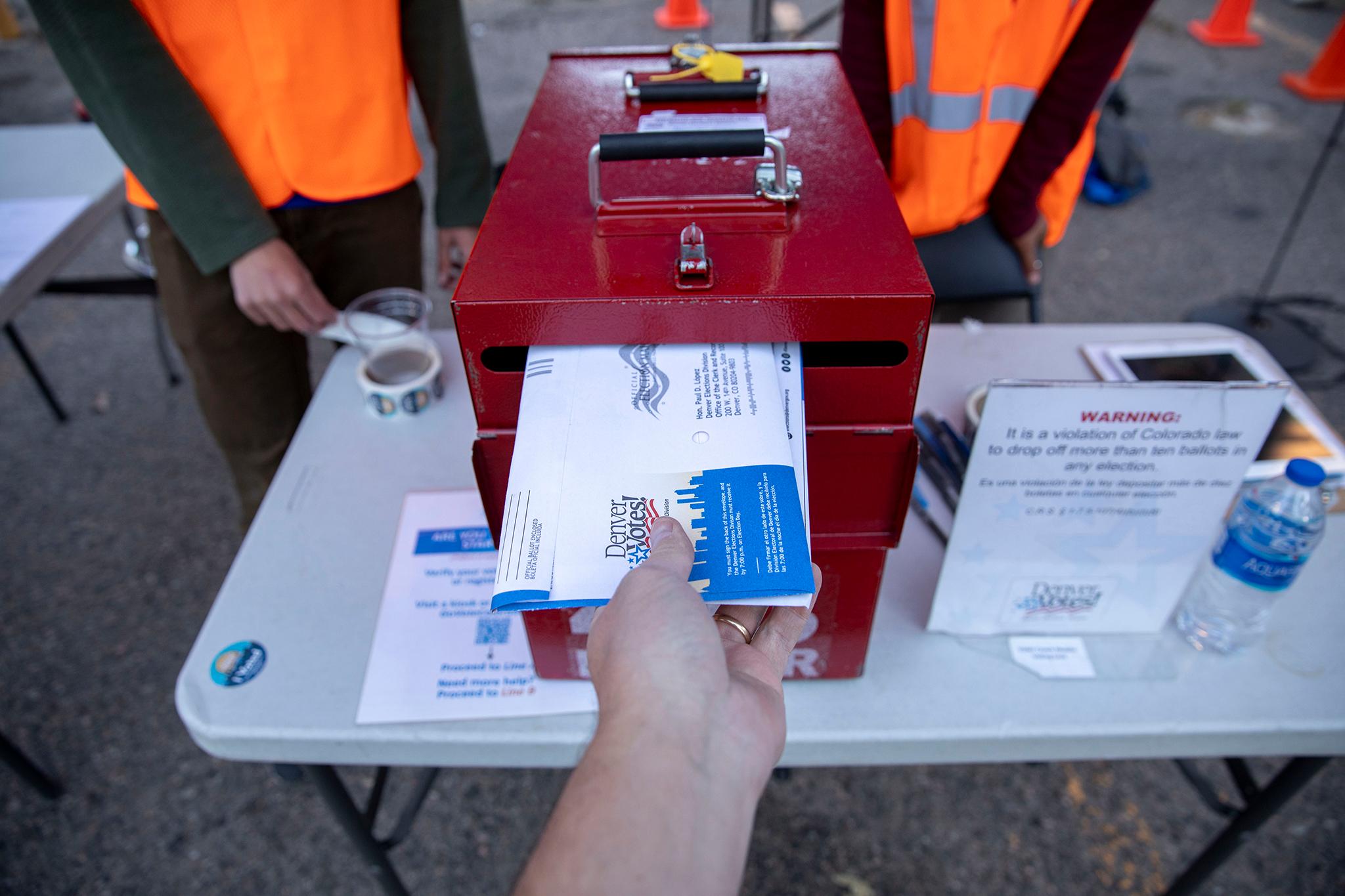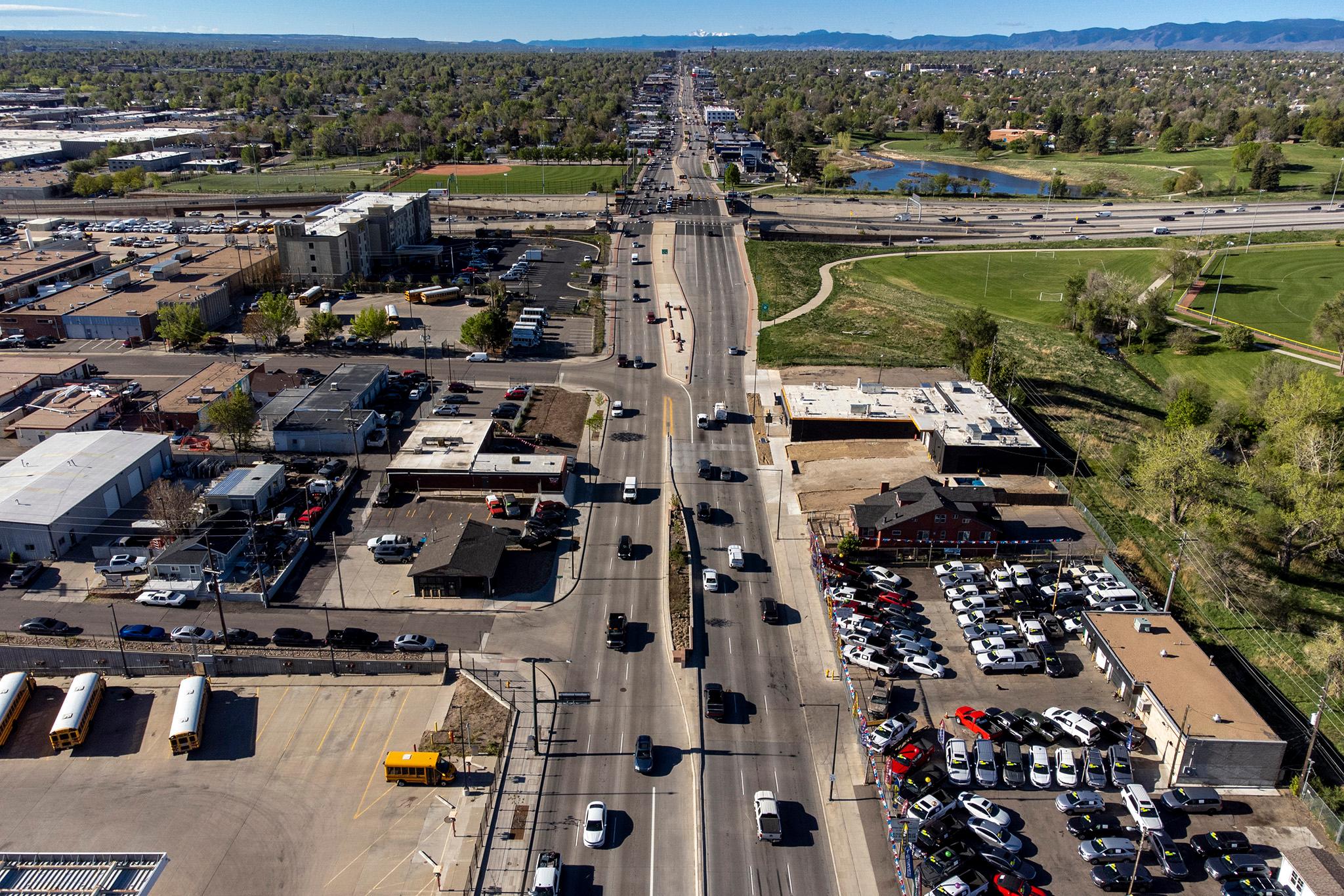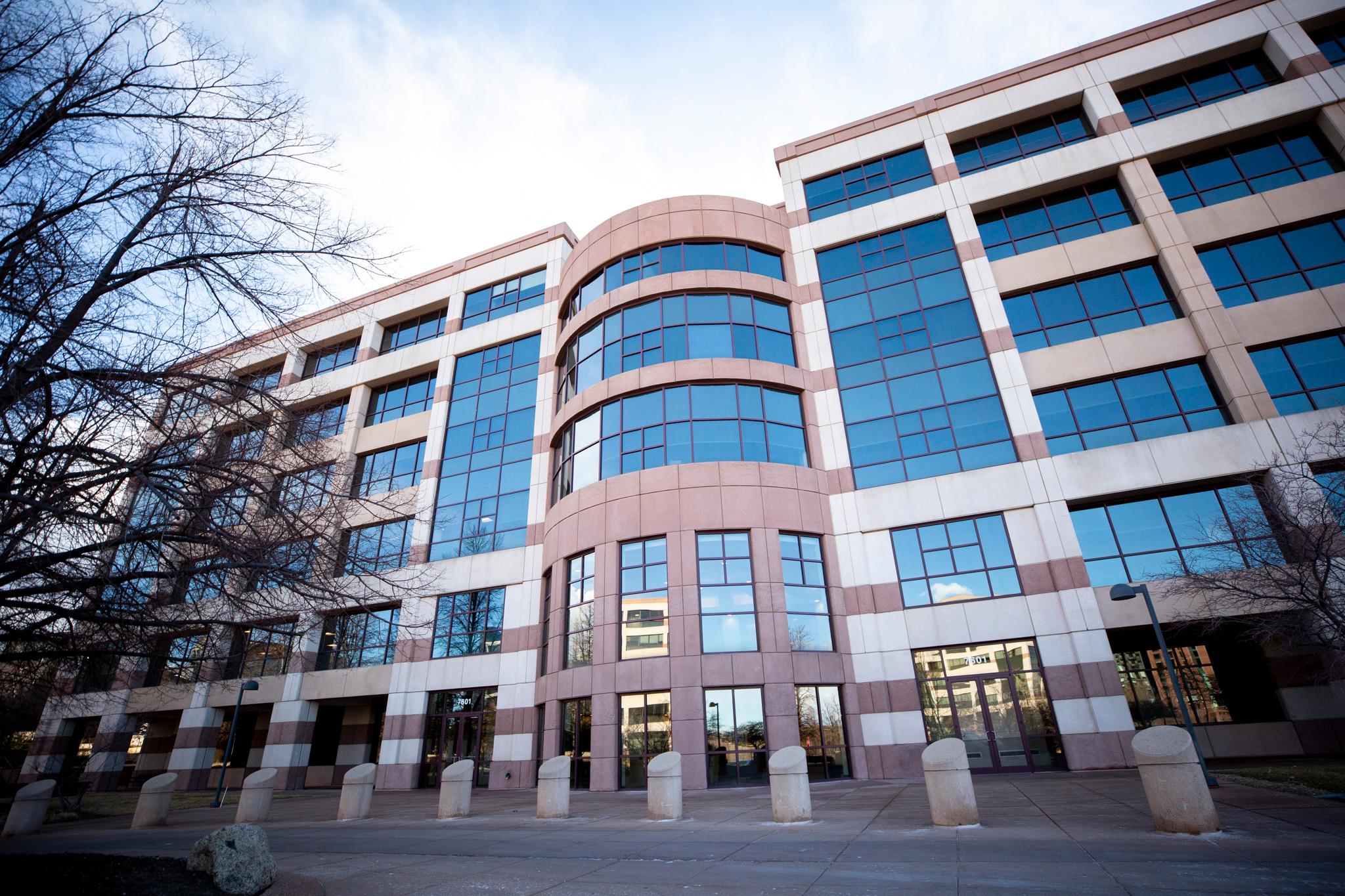Denver City Council members have proposed two measures that could significantly change local elections.
One measure would reform the entire Denver election system by adopting ranked-choice voting, a system that allows voters to rank multiple candidates in elections. A similar system was rejected by Colorado voters last year.
A second measure would change how the city elects at-large council members.
The two measures are being proposed by different council members, and could conflict with one another as written. Both would amend the city’s charter, which would require voter approval during the November election.
Proponents of both measures argue they would give voters more choice and influence, though ranked-choice voting has been criticized as complex and confusing.
Both ideas were discussed at the city council’s Budget and Policy Committee on Monday. No actions were taken, but the sponsoring council members hope to pass the measures through council next month, in time to put the proposals on the November ballot.
Ranked-choice voting would change the entire election process.
Currently, Denver’s municipal elections use a runoff model. Residents vote for a single candidate for elected offices like mayor and most council seats.
If no candidate wins more than 50 percent of the vote, the city holds a separate runoff election in the summer between the top two candidates in each race.
Critics say that the process is time-consuming, expensive and confusing. That’s led council members Darrell Watson and Sarah Parady to propose a system of ranked-choice voting, sometimes known as “instant runoffs”.
In their proposal, voters could rank multiple candidates in order of preference. All voters’ rankings would be combined to determine the winner of each race.
If one candidate wins a majority of first-choice votes, they are the winner. But if no candidate wins a majority, then a process of counting and redistributing votes begins.
First, the candidate with the fewest first-choice votes is eliminated. Ballots supporting that candidate would then be redistributed. If a voter’s top choice is eliminated, their ballot then goes to their next ranked choice. (If a voter hasn’t selected a next choice, their ballot is “exhausted” and removed from the counting.)
This counting and reassigning process is repeated until one candidate is the top choice of a majority of the remaining ballots.
Watson and Parady say the system would benefit the city in multiple ways, including bringing election costs down and bringing younger people out to the polls. A ranked-choice system would eliminate the need for separate runoff elections.
Parady said a coalition of organizations like Common Cause and the League of Women Voters supports the proposal.
Other cities in Colorado, like Boulder and Fort Collins, have made the jump to ranked-choice voting in recent years. An attempt to adopt the system for Colorado’s state and federal elections, like Congress, the state legislature and governor, failed last year — as did similar proposals in other states.
Parady said she and other proponents of the Denver measure opposed Prop. 131, which also would have changed how party primaries are held. She said her proposal works “really differently” to the statewide ballot since Denver doesn’t have party primaries and follows a runoff format.
Some council members dislike the idea. Council President Amanda Sandoval said she doesn’t support ranked-choice voting and there are other ways to increase voter turnout.
“I think it's all based on candidates,” she said. “I don't think it's based on our voting system.”
Opponents of ranked-choice voting often focus on its complexity. Some research shows voters make more mistakes on ranked ballots, disqualifying their votes.
Supporters, meanwhile, point to RCV as a solution to political polarization, arguing it gives voters more flexibility to support third-party and other candidates without fear of “wasting” their votes. Some evidence has also shown that RCV is correlated with more civil elections, arguably because candidates don’t want to alienate the supporters of their rivals.
How at-large elections could change.
A separate proposal would change how Denver elects the at-large council members who represent the entire city at Denver City Council.
Under current rules, all candidates running for council’s two at-large positions compete under one ballot. The two candidates with the most votes are elected to the two seats.
The system has attracted criticism because the winners rarely if ever win a majority of the votes. In 2023, Serena Gonzales-Gutierrez and Sarah Parady won the two at-large seats with 20 percent and 17 percent of the vote respectively. In contrast, candidates running for a district council position have to get more than 50 percent of the vote to win.
Under the new proposal, the at-large seats would be elected separately. Candidates would run for At-Large A and At-Large B. Candidates would have to choose between the two races — and the winner of each seat would have to get a majority of the vote.
The proposal is spearheaded by District 2 Councilmember Kevin Flynn and supported by fellow council members Watson, Flor Alvidrez, Stacie Gilmore and Amanda Sawyer.
Flynn said he’s been working on the measure on and off since 2021. He said the current system incentivizes people to waste their vote and holds district offices to a different standard than the at-large elections.
“Separate ballots for each seat will minimize under voting and, more importantly, bring more voter voices into the results,” Flynn said.
Councilmember Parady wanted to see support from voting rights groups like the League of Women Voters and Common Cause.
“The other thing is that sort of saying over and over and over again that people are throwing away their votes, I think that feeds the narrative that our elections are badly managed or that there's some problem here.” Parady said.
Paul López, who runs Denver’s Clerk and Recorder’s office, which oversees elections, said the program was feasible, but he prefers other reforms for at-large elections. He suggested holding elections for the at-large seats in different years.
“It's easier to solve this problem if you stagger the elections because all you have to do is have one at-large [election] in the off-cycle,” López said.
The two proposals aren’t complementary, according to the Clerk and Recorder’s office.
While López said both proposals are legally sound, there’s uneasiness from his office about what would happen if both are approved by voters.
“One proposal seeks to keep and expand the runoff election, while the other seeks to eliminate it,” a letter from López to the city council said. “My staff and I have analyzed these proposals through an implementation lens, so I want to point out that we cannot implement both as currently proposed.”
Both proposals would be implemented for the city’s spring 2027 elections if they are approved this year.











